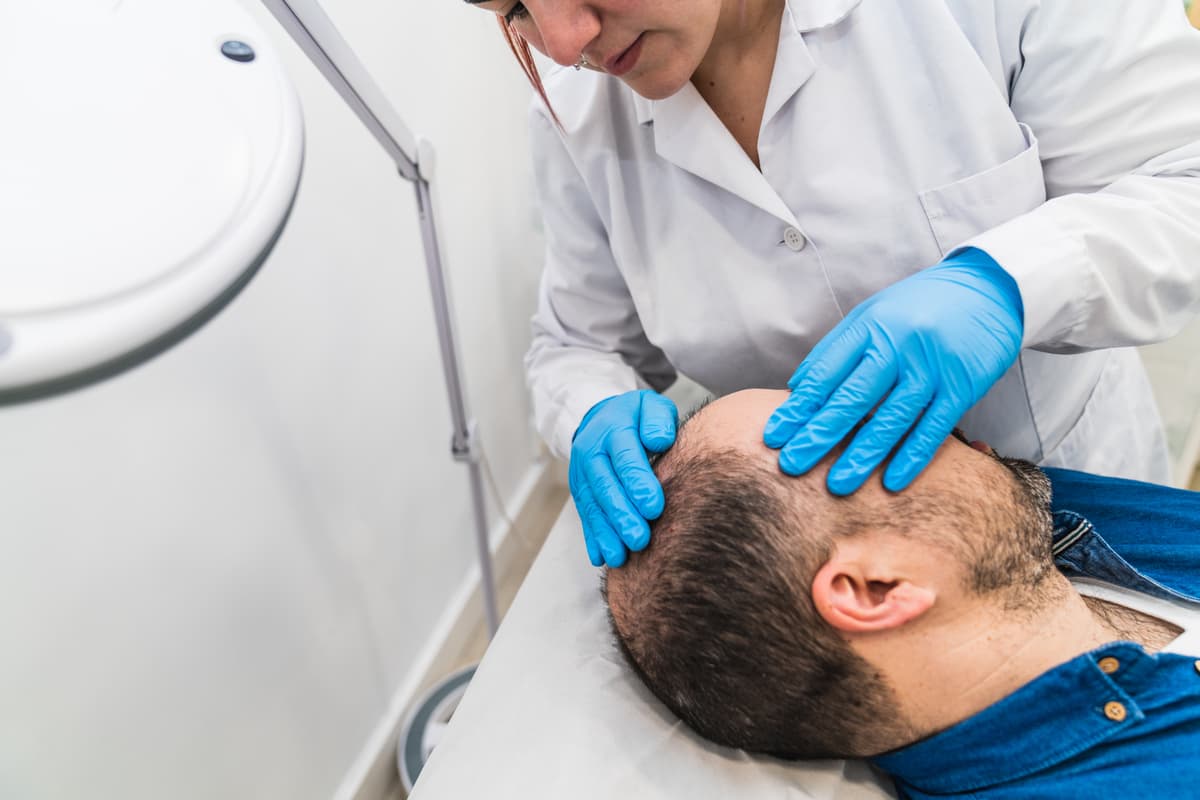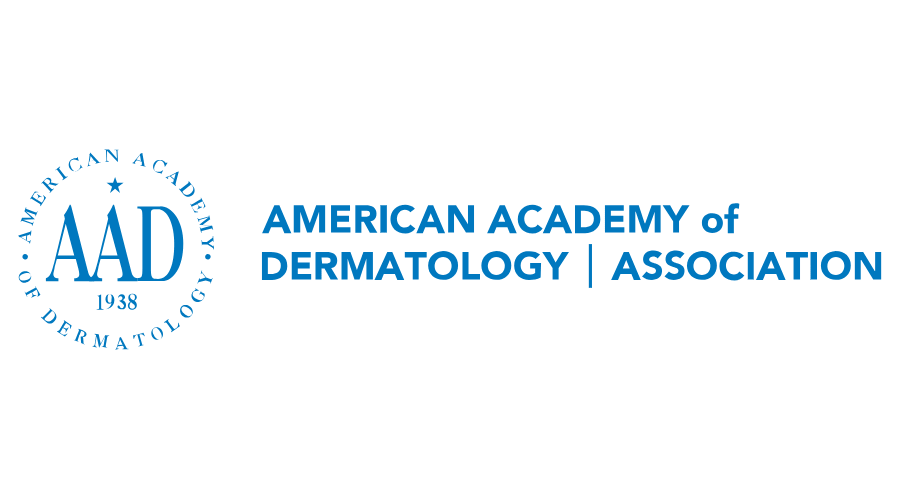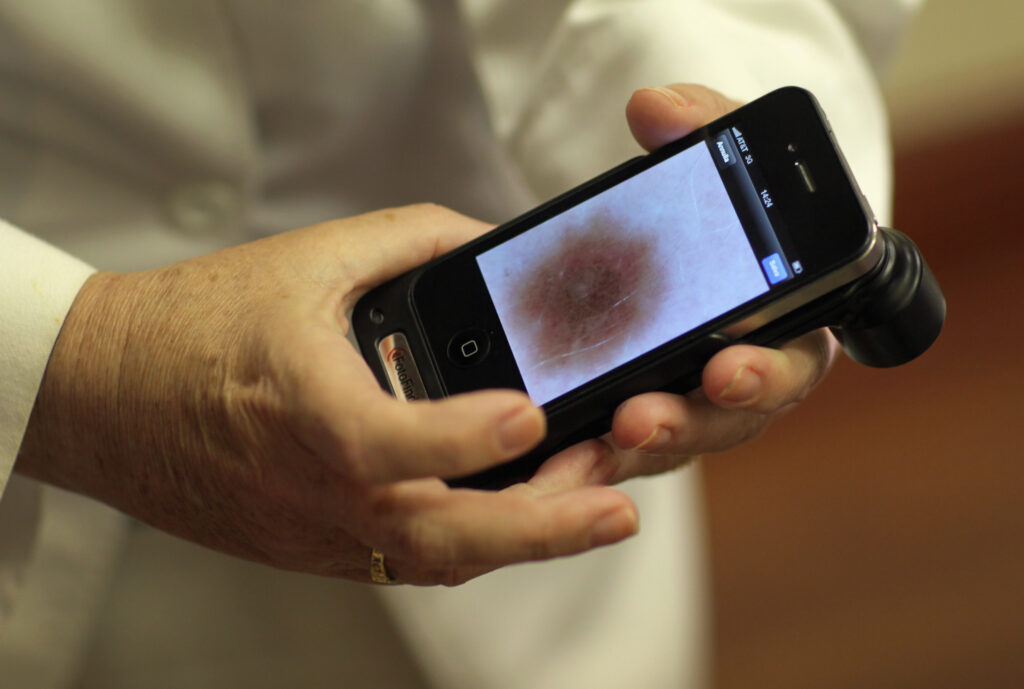America’s Largest Dermatologist Group Engulfed in Battle Over Diversity, Equity, and Inclusion Policies That Are ‘Weaponized Against Jews’
A resolution to ban DEI that will be considered at the American Academy of Dermatology’s upcoming meeting is sparking heated debate among doctors.

America’s largest and most influential dermatology group is considering a resolution to ban its “diversity, equity, and inclusion” initiatives that some doctors fear are promoting antisemitism and leading to biased medical care.
A resolution will be debated at the American Academy of Dermatology March 8-12 annual meeting to “remove the current DEI initiative” and instead adopt a “more inclusive and unifying ideology in its place, one that genuinely promotes the end of racism and supports the equal treatment and respect of all individuals, especially within the healthcare system.”

It’s the latest in a wave of backlash against DEI and other race-based policies and quota systems in healthcare, education, politics, and the workforce — a pushback that has grown since the Supreme Court’s ruling last year banning race-based admissions in higher education. Multiple legislatures in red states have been passing bans on DEI at public institutions, even as the Biden Administration, blue state governments and the private sector continue to expand and enforce DEI policies.
The dermatologists’ resolution isn’t publicly available as the debate and voting is a “member-only process,” an Academy representative tells the Sun, adding that the resolution was brought by a “small” group of 83 members while the Academy has more than 20,800 members in total.

The resolution — images of which are circulating on X — says that while diversity is important, “DEI has evolved in recent months into a political movement that categorizes certain groups as oppressors and others as oppressed, creating a binary system of ‘racist’ and ‘anti-racist’ without allowance for neutrality.” It adds that DEI has led to “control of speech” and “the stifling of diversity,” fostering division instead.
The resolution does not list specific instances of how the Academy’s DEI policies could lead to antisemitism but instead focuses on larger concerns about the ideology itself.
“Since October 7 there have been instances where the DEI movement has been perceived as being filled with antisemitism, weaponizing the concept against Jews by labeling them as ‘oppressors’ and allegedly justifying extreme hate speech and violence,” the resolution notes, adding that Judaism does not “inherently fit within the DEI framework” and that patients should be treated equally instead of being viewed as oppressors and oppressed.

The resolution was introduced by Brian Raphael, who told the Sun: “I regret this resolution was not received in the manner we intended, and therefore we are clarifying our position. The original intent of the proposal was always to work with our colleagues and the AAD/A to adopt an even more inclusive policy in its place, one that promotes the end of racism and hate speech—and supports the equal treatment and respect of all individuals, especially within the healthcare system. We fully support AAD/A’s existing diversity programs that are focused on promoting inclusivity and creating opportunities for all groups. We are working with the AAD/A to arrive at a more inclusive policy that recognizes the horrifying rise of anti-Semitism and the need to protect against all forms of hate and discrimination.”
The Academy’s Board of Directors adopted a plan in 2020 to build on DEI by implementing education and training programs to increase the number of dermatologists from Black, Latino, and Indigenous backgrounds, advocating for Latino and Black patient research, and addressing health disparities.
A representative of the Academy pointed the Sun to its statement on Thursday noting that it has “long recognized diversity as a part of our mission to advance excellence in dermatology for patients.”
The resolution is facing fierce backlash from DEI proponents, who have introduced at least two resolutions countering it.

One resolution states that DEI is “an inclusive and unifying ideology which serves a population that by statistics have shown the need for intervention” and says the Academy “should not entertain or consider removing the current DEI initiative.”
An online petition with nearly 6,000 signatures is aiming to expand DEI rather than banning it, noting a 2020 study that found dermatology to be the second least diverse medical field, in terms of doctors practicing the specialty, after orthopedic surgery.
The petition argues that the current DEI policies were put in place to target racial disparities that are a threat to public health. Dissolving the DEI initiatives would be a “step backward,” the petition notes, and “will not reduce the antisemitism currently faced by AAD members and patients. Instead, the signers suggest that DEI programs add additional programs to protect against religious hate.
The Academy’s 2022 DEI report notes stories of Black patients who had trouble receiving a diagnosis because of difficulties in detecting issues in “richly pigmented skin,” including one woman who was suffering eczema but was misdiagnosed with a skin condition associated with HIV, sparking fear and confusion.
Yet the doctors signing the resolution said that while DEI was “initially well-intentioned,” it is “now believed to hinder rather than help the diversity in our specialty and the broader healthcare field, and to obstruct efforts to address and improve racism within our systems.”
The resolution will be considered by the Academy’s Advisory Board, and if approved, will be referred to the Board of Directors, which sets policy for the organization.

